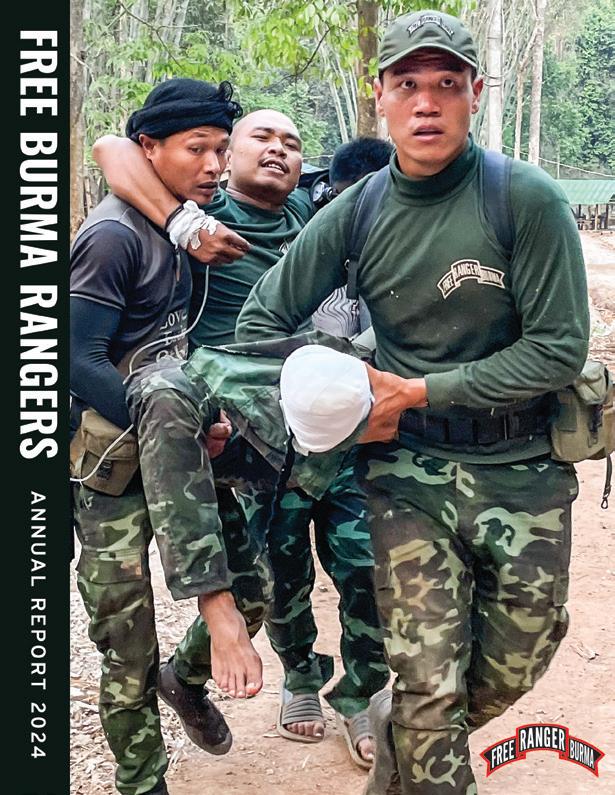

DON’T FEED YOUR FEAR FEED YOUR FAITH
Letter From the Director
Don’t feed your fear feed your faith,” said Julia from Ukraine, as she spoke with displaced people in Karen State, Burma. In Ukraine, Julia had lost her brother and many friends in the fighting, and her father was on the front lines and out of communication. Tears came to our eyes and the eyes of the displaced, as we all could feel the pain and knew from our experiences exactly what she meant.
Before her visit to Burma, we had been invited many times to come help Ukraine, but because of the heavy fighting in Burma we did not feel we should leave. However, when she came and encouraged the people in Jesus’ name, we felt we could also do something like that for the people of Ukraine. So this past year we started a very small rotation of chaplains and medics to go and help. Our family, along with one of our medics, Sky, and Eliya, the Karen cofounder of FBR, and his two sons, made the first trip. My family has grown up with Eliya’s in Burma and now, there we all were, in Ukraine. What struck all of us was that God was bigger than our missions, our affections, and our plans.
In spite of the mission in Ukraine, Burma is still our main effort, with Burma seeing the worst fighting we have ever seen, and Iraq and Syria, as well as Tajikistan, are also missions that we are committed to. So dear friends, we thank you for all your care for people in need and your partnership as we stand together for love, justice and freedom. Serving in Burma, Iraq, Syria, Tajikistan, and Ukraine is a blessing, and we thank God for this opportunity to be part of freedom and reconciliation.
In Burma, the military is lashing out with their Russia and China-supplied jet fighters, heavy artillery, missile systems, tanks,
and mortars with a speed and vengeance we’ve never seen before. There are now over 3 million people displaced in Burma in the last three years since the coup, and thousands have been killed. Thousands of schools, hospitals, churches, homes, and IDP sites have been targeted and destroyed. In Karenni State, for example, every hospital and clinic has been bombed. The regime is supported by Russia, China, North Korea, and Iran. In that sense, things have gotten worse.
The fear of bombings and attacks and the sorrow at the loss of friends and family in the face of the onslaught lies heavy on all in Burma. But the dictators are slowly and steadily losing control of the country. Since the coup three years ago, a new unity has been born in Burma that cuts across social, economic, political, racial, tribal, and religious lines. This is a unity for a free and inclusive Burma and it is a unity against dictatorship. This came as a surprise to just about everyone, but it is also an answer to prayer. As you will see in a map in the following pages, the forces of freedom are gaining more control, and the dictators’ area of control is shrinking.
The people of Burma have a sure resolve. When I’m with them, I see them standing with tears in their eyes burying a loved one after an airstrike, or carrying the wounded as fast as they can and then turning around and going right back into the fire to save more. They are terrified and suffer great loss, but are fueled by love and commitment to each other and a new rule of love and law in Burma.
We continue to pray for love, justice, understanding, forgiveness, and reconciliation throughout this struggle. As the Burma Army has tried to crack down on its own people, this has only strengthened the
resolve of the people for change. When change does happen, and a representative government is formed in Burma, we want love and reconciliation to be its foundation. This means that right now we all have to act in love, justice, and forgiveness in every part of the struggle. In the face of the attacks we pray for the dictators and their army, that their hearts would change.
In Iraq and Syria our mission of providing relief for displaced people, building playgrounds, helping with building schools and hospitals, and relationships of love with leadership in these countries continues. In some parts of both countries, ISIS is resurgent and different factions, representing different extremist groups, attack each other and our friends. Iran has become increasingly bold and launches attacks which we experienced firsthand. We have daily opportunities to share the love of Jesus, and are grateful for the friendships there. In Tajikistan we continue to partner with local ministries to share the gospel of Jesus with Afghan refugees as well as providing educational and material support so the people can not only survive but thrive. In Ukraine we also are partnering with local ministries as we rotate small teams of chaplains and medics to encourage, comfort, and teach wherever we are invited.
We know the line of good and evil isn’t between us and them but in each of our hearts, and only Jesus can save us. Thank you so much, each of you who pray for us and for the people we serve.
Thanks and God bless you, Dave, family and FBR
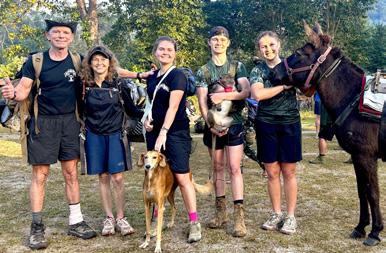
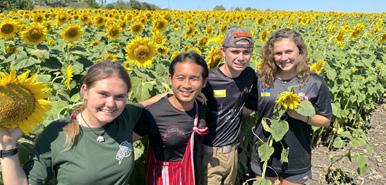
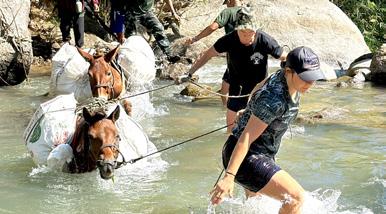


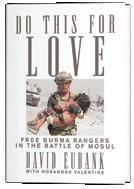
Love each other. Unite and work for freedom, justice, and peace. Forgive and don’t hate each other.
Pray with faith, act with courage, never surrender.
Who We Are
The Free Burma Rangers (FBR) is a multiethnic humanitarian service movement working to bring help, hope, and love to people in the conflict zones of Burma, Iraq, Kurdistan, Syria, Ukraine and other places they are invited. Working in conjunction with local ethnic pro-democracy groups, FBR trains, supplies, and later coordinates with what become highly mobile multipurpose relief teams. After training, these teams provide critical emergency medical care, shelter, food, clothing, and human rights documentation in their home regions.
The purpose of the Free Burma Rangers is to share the love of Jesus and to be His ambassadors wherever we go. People of different faiths are welcome to be part of the Free Burma Rangers and people of different ethnicities and beliefs make up the FBR humanitarian relief effort. All are called to serve for love.
Vision
To free the oppressed and to stand for human dignity, justice and reconciliation.
Mission
To bring help, hope and love to people of all faiths and ethnicities in conflict areas, to shine a light on the actions of oppressors, to stand with the oppressed and support leaders and organizations committed to liberty, justice and service.

Objectives
- To inspire, train, and equip people in conflict zones to bring positive change through acts of love and service.
- To provide immediate medical assistance, shelter, food, clothing, educational materials and other humanitarian aid in war zones and to improve logistics and medical evacuation.
- To develop the Information Network of Burma that documents, reports, and disseminates accounts of human rights violations and provides an early warning system of Burma Army attacks.
- To provide prayer and counseling for victims of human rights abuses and to support programs for women and children.
- To train, equip, and sustain indigenous humanitarian relief teams in the field.
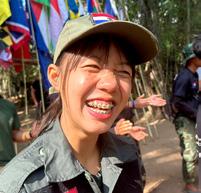
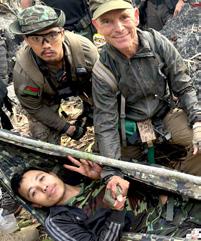
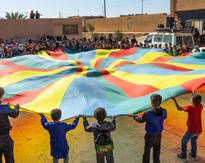

RANGERS IN THE GAP
providing transport, maintaining crucial communications between the front lines and back, and providing emergency resources such as shelter, food, water, and medical supplies. In so doing, they bring help, hope, and love into the darkest of places. 1 2 3 4 5 6
FBR teams operate in the humanitarian gap – that is, the space between the most dangerous part of an active frontline in combat and the rear areas, where most humanitarian organizations operate to provide needed relief for those caught in conflict. Humanitarian workers are rarely at the front for many reasons, including the mortal danger present at the front and subsequent security protocols, the complex, ever-shifting environment and the specialized training, equipment, and relationships needed to provide any kind of assistance at any front line. At the same time, the ability of armed groups to provide medical care, evacuation, or shelter is often limited, preoccupied as they are with protection.
This means civilians who require medical treatment, food, shelter, or transport are often on their own and extremely vulnerable as they attempt, usually on foot and often with sick,
injured or elderly family members, to cross lines of battle to reach care and safety. In Syria, we saw that sometimes the gap between the front lines and the nearest relief was over fifty miles of desert. While we were on a relief mission in the Nuba Mountains of Sudan, where the Sudanese government attacked daily, people had to cross hundreds of miles of desert to get help. At seventy-four years, the longest civil war in the world rages on in Burma, relentless military attacks work to block assistance to displaced people at the front lines. Outside relief is often arduous days of walking away. The humanitarian gap can, indeed, be fatal. This humanitarian gap is where FBR teams operate. Often side-by-side with frontline soldiers, FBR medics can stabilize the wounded, both soldiers and civilians, then evacuate them to more stable care. The teams help fleeing families escape by serving as guides and

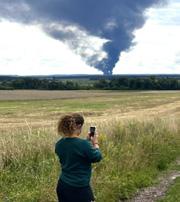
1. A Karenni Ranger laughs during a GLC program.
2. A FBR GLC program in Syria.
3. An airstrike demolishes a home in Karenni State, Burma.
4. Dave Eubank and FBR medic Victor treat a patient in Karenni State, Burma.
5. IDPs flee their homes after attacks by the Burma Army.
6. Suuzanne Eubank films an airstrike in Ukraine.
FBR TEAMS
The Free Burma Rangers formed in Burma in 1997 and are composed of individuals from different ethnic groups within Burma providing direct relief to communities most affected by government oppression.
These teams are trained to provide relief and medical care while documenting and reporting human rights violations. Since its formation, more than 1,400 missions have been conducted to assist over 1,800,000 people. The Burma Army staged a coup on 1 February 2021. Three years later the country is still fighting to free itself from oppression. Our teams are continuing to operate within areas of ethnic control but are now being called to assist teams
in major cities. They are partnering in new ways with individuals who are ethnically Burman and opposed to the government. FBR has over 140 teams operating in the cities and jungles, providing medical aid and evacuations, IDP support, and front-lines reporting and human rights documentation. Attacks across Burma have increased; shelling, bombings, landmines, and the use of attack helicopters and fighter jets are now common occurrences.

ARAKAN
15 Teams: 2 Full-Time, 13 Part-Time
Partner Organizations: Arakan Liberation Party and Arakan Army
BURMAN
10 Teams: 10 Full-Time
Partner Organization: National Unity Government
CHIN
7 Teams: 4 Full-Time, 3 Part-Time Partner Organization: Chin National Party
KACHIN
8 Teams: 2 Full-Time, 6 Part-Time Partner Organizations: Kachin Independence Organization and Kachin National Organization
KAREN
44 Teams: 44 Full-Time
Partner Organization: Karen National Union
KARENNI
20 Teams: 20 Full-Time
Partner Organizations: Karenni National Progressive Party and United Karenni State Youth
LAHU
2 Teams: 1 Full-Time, 1 Part-Time Partner Organization: None
MON
2 Teams: 2 Part-Time Partner Organization: None

NAGA
5 Teams: 5 Part-Time Partner Organization: Naga National Council
PA-OH
2 Teams: 2 Full-Time Partner Organizations: Pa-Oh National Liberation Organization and Pa-Oh Youth Generation
ROHINGYA
2 Teams: 2 Full-Time Partner Organization: None
These teams are located in the refugee camps in Bangladesh.
SHAN
14 Teams: 1 Full-Time, 13 Part-Time Partner Organizations: Restoration Council of Shan State and Shan State Progressive Party
TA’ANG
6 Teams: 6 Part-Time Partner Organization: Palaung State Liberation Front
HEADQUARTERS
3 headquarters teams join local teams for missions all over the world.
MIDDLE EAST
1 SYRIA team and 1 KURDISH/IRAQ team operates in the Middle East
BURMA TAJIKISTAN IRAQ SYRIA UKRAINE
SOUTH SUDAN
FBR MISSION AREAS

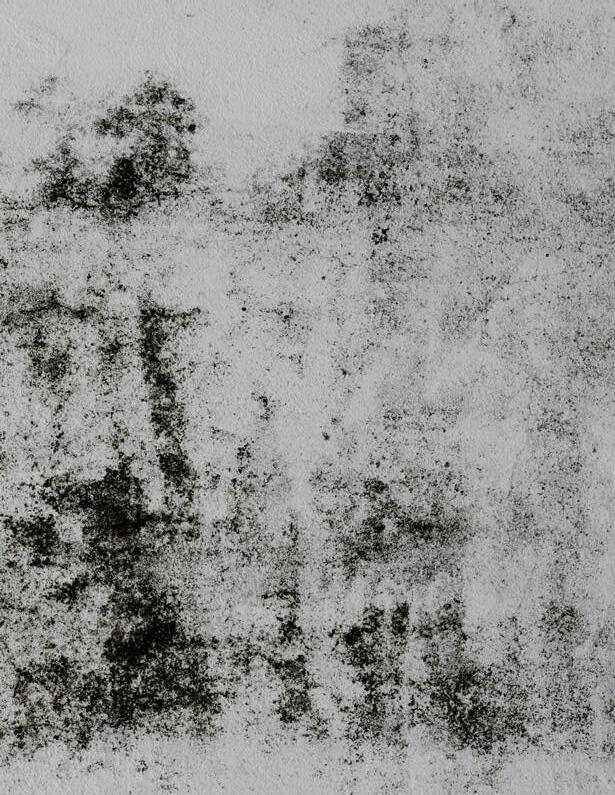
Three years after the coup of 1 February 2021, Burma faces deep and protracted political, humanitarian and economic crises. Nevertheless, the resilience of communities and resistance forces is inspiring.
The State Administration Council (SAC) junta is illegal, illegitimate, and failing. Not only does the military regime repeatedly commit war crimes against civilians, and preside over a collapsing economy, it fails to exercise even limited forms of militarized control over half the country. In April 2023, the Free Burma Rangers produced a map detailing the Myanmar Army’s dramatic loss of control two years after the coup, based on field reports from across the country. Since then, resistance forces have taken control of significant new areas, particularly Ta’ang and Kokang territories in northern Shan State.
Key ethnic armed organizations (EAOs) are leading a broad coalition of federalist and democratic forces in the struggle against the junta. When people across the country rose up against the reviled junta, these EAOs sheltered refugees from the towns and cities, and played important roles supporting the emergence of People’s Defense Forces (PDFs) - a new generation of armed groups determined to resist the military takeover.
Some PDFs work with the National Unity Government, while many
operate independently or are aligned with EAOs. The combination of EAO and PDF forces has been highly effective. For example, PDFs continue to battle against the junta in Burmanmajority communities long considered to be under central state control. Meanwhile, the Karen National Union (KNU), which had not taken and held onto a Myanmar Army base since the 1950s, has, since the coup, liberated over 50 enemy bases, expelling the Myanmar Army from large parts of Karen State. The KNU and PDFs have inflicted multiple defeats on junta forces in areas which have not seen fighting since the 1960s. Significant victories have been achieved by EAOs and PDFs in Karenni, Kachin, Chin and northern Shan states (Ta’ang and Kokang).
While it seems likely that this conflict will drag on, EAOs and other anti-junta forces are on the ‘front foot’ for the first time in decades. The resurgence of ethnic self-determination movements since the coup has profound political consequences. In the absence of a legitimate legal central authority, political sovereignty arguably reverts to the ethnic nations that were first yoked together as a colony of British India. The inheritors of these ethnic nations –EAOs, new state-level consultation and coordination bodies (for example, the Karenni Interim Executive Council), and civil society organizations (CSOs) – have key roles to play in building a
SITUATION UPDATE:
BURMA
BY ASHLEY SOUTHnew Burma from the “bottom up.” The recognition of ethnic homelands should form the basis of discussions on ethnic self-determination and federalism in Myanmar. Federalism has long been considered an important tool for resolving the country’s protracted state-society conflicts and achieving self-determination for ethnic nations. Federalism has often been discussed in terms of the need to revise - or better, replace - the military’s 2008 constitution. While this type of topdown (“blueprint style”) constitutional change is necessary, federalism can also be seen as an emergent phenomenon, developing out of existing practices of communities and EAOs, state-level bodies, and CSOs.
Before the 2021 coup, the challenge in Myanmar was to federalize an authoritarian and centralized (albeit deeply contested) state, following decades of mostly low-intensity civil war. Since the military takeover, the challenge is to rebuild Myanmar through a new federating process. It will be important to support the resilience of communities, CSOs, and EAOs in order to meet another existential challenge: climate change. Conversations with people across the country indicate that rural communities are already beginning to experience the negative impacts of climate change, with higher temperatures and more unpredictable rainfall affecting rice and other harvests. As well as urgent

SHRINKING DICTATORIAL CONTROL

humanitarian needs across the country, it is essential to support locally-led adaptation and mitigation activities (including climate-smart agriculture and forest conservation). Local organizations (CSOs and EAOs) have access, but more funds are needed.
The struggle for self-determination and indigenous rights in Burma draws on, mobilizing the extraordinary
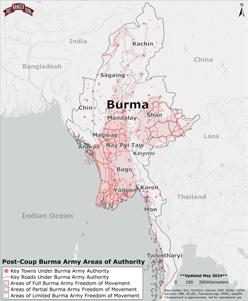
resilience of communities, CSOs, and long-standing EAOs. Given the likely protracted nature of conflicts in Burma, it is essential to support legitimate EAO governance authorities which provide services to vulnerable communities.
For example, key EAOs administer – and have for years – at least 3000 schools, providing mother tonguebased, multilingual education to some
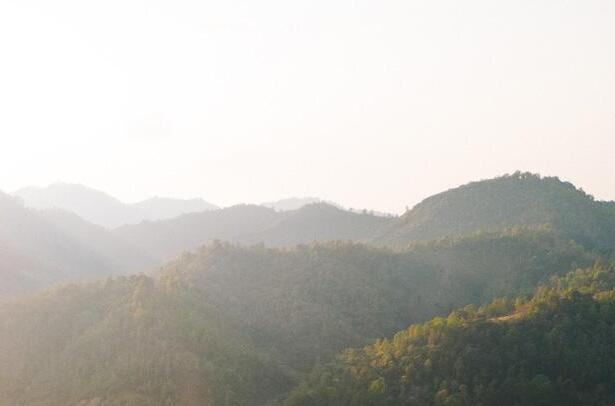
one million vulnerable children across the country.
Meanwhile, the State Administration Council (SAC) junta detains and tortures citizens, rains death from the sky in airstrikes on IDP camps, and loots the country’s natural resources. However, a new federal Burma is emerging, from the bottom up.
KAREN
In December, we graduated 165 new Rangers and went on a relief mission from the mountains down into the wide, open plains of western Karen State. Seven of our team had asked to be baptized and we did that right before the mission and also had a beautiful wedding for one of our Rangers, which kicked off the whole mission with joy. We moved initially on foot, supported by our mule and horse team that we love, down into the plains, where over 10,000 people had been displaced in the previous two months.
As we neared the plains, we could hear the sounds of airstrikes and mortars both day and night. The Burma military was firing heavy mortars from their positions on both sides of the Sittaung River, and civilians were being killed and wounded as they tried to escape. Homes were destroyed, farms ruined and lives wrecked as the Burma military relentlessly used all the weapons at their disposal against their people. At each hiding place we arrived at, we found the displaced families, sitting patiently and smiling when we came, saying, “We are so happy to see you. Thank you for not forgetting us! Thank you for all your help.” This was their response everywhere we went.
They lifted us up as much as we lifted them up as we sang songs together and danced. Good Life Club children’s program brought joy to all of us, even as the sound of mortars crashed in the distance around the villages they had fled. In between the programs, we went with a small team to document the destruction, and as we filmed in one village, the Burma Army launched a ground attack against us. They were very close and on two sides of us but by God‘s grace we were able to escape.
This attack highlighted that the Burma military, although being pushed back in some areas and encircled in others, still has freedom of movement and that there is no ground force stronger than them. The military can walk anywhere they want to walk, attack anywhere if they have enough
troops. On this particular day, they had enough troops. The military has more power than any of the resistance groups, and at any single contested point, if they bring enough forces, they win the battle. However, the new unity in Burma that cuts across social, racial, tribal, economic, religious, and party lines, means that people are standing up all over and the military cannot handle them all, and, in fact, has lost over half the country to the resistance groups. The military still controls most of the major cities and border crossings. However, their power is shrinking. As this power shrinks, they react even more violently against their own people, trying to kill as many as they can.
After documenting the attack and burned homes, markets, and buildings, we went back and joined the Good Life Club. Along with this program for children and the distribution of relief funds for rice, our medics also treated patients everywhere
we went. On another movement to visit a village, heavily under attack by the Burma military, we documented the destruction and direct bombing of a church and many homes, and also met some of the civilians who had been wounded and were now recovering.
One of the most touching moments was watching a grandmother lovingly watering a row of plants in the middle of her grandchildren’s burned home. All around was destruction, but the plants had survived; as she watered them, she looked up at me with a smile and said, “What else can I do? I will try to help these plants live.” Her smile and her work touched us very much. As we left the village, she was sweeping the front of the ruins, and said, “Well, my house is next door and even though it’s damaged it is still livable and so I’ll keep making it better.” That is the spirit of the people here.
We met with other healthcare providers
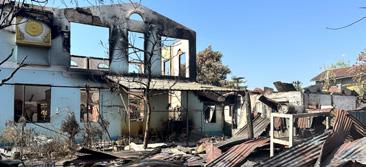
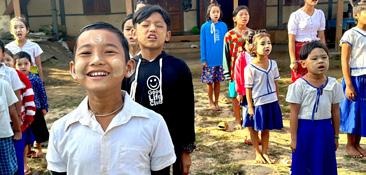
Opposite Top: Destroyed homes and market in the village of Nga Tha Kae, west of Ler Doh.
Opposite Bottom: School children sing the Karen State national anthem.
Top: A Karen grandmother gives us a big smile.
Bottom: A Karen grandmother waters her plants in the ruins of her home.

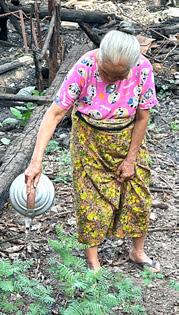
already down in the valley and we are still doing our best to support them. There are multiple civil disobedience movement (CDM) medical groups providing lifesaving care to wounded civilians, as well
as resistance soldiers. The work they are doing is world-class, but has very little outside support.
There are also outside groups such as Earth Mission Asia (EMA), which is giving medical training and life-saving medical surgical care to badly-wounded villagers and anyone in need. EMA needs more direct support to continue their vital operations. The CDM medical groups also need more direct help. Hundreds of lives, including may of our own Rangers’, have been saved at these facilities.
Considering the life-and-death nature of the Burma military attacks on its own people and the dire situation the people face, there needs to be a massive outpouring of support to help these people. The CDM medical organizations on the ground, and other groups like EMA, are made up of highly qualified professionals. Many of the CDM were the top doctors and surgeons in their hospitals who, after the 2021 coup, joined the pro-democracy movement and are now living under mortar fire and airstrikes, and are willing to sacrifice everything to help their people. They perform world-class surgery and are absolutely impressive in what they do. We appeal to people who care about the people
in Burma to support these organizations any way they can. We are doing our best to support them here on the ground. On this mission, every day we walked to a different area where people were hiding. Sometimes it would be 400 to 500 people, sometimes over 700, hiding amongst the trees. We performed Good Life Club programs for the children and families, and everyone joined in, men, women, and children; the looks and the smiles on their faces were wonderful. Airstrikes, mortars, and artillery are constantly raining down in the plains as the Burma military seeks to crush all opposition and starve the people out. In spite of this, everywhere we went the people said they were not going to give up. They want a free country and they won’t go back to dictatorship. Schools are being held in the jungle or in buildings where they think it is still safe, and people are sharing food and resources with each other. Burmans and ethnic Karen and other ethnic groups work together in ways they never have before and this is a wonderful blessing, and a testimony to the positive ways that Burma is changing.
KARENNI



Since the coup in Burma three years ago, over 3 million people have been displaced and thousands have been killed. The Burma military regularly attacks civilian populations in both their villages and in hiding places where they go to flee the fighting. Jet fighters, heavy mortars, and artillery kill and maim people every day. Families are gunned down the moment they step into range of Burma Army troops.
Seeing these vicious attacks, it’s hard to not hate the Burma military. We wonder how we can obey Jesus’ command to love our enemy when confronted with such evil. The answer is that we cannot, not on our own. But we can ask Jesus to help us. We can surrender our hate, our fear, and our loathing to Jesus. This is what we pray for every day before we set out on mission –and he does help us.
In February, local pro-democracy resistance groups asked us to provide medical support as they tried to push the Burma Army out of the town of Shadaw in Karenni State. The Burma Army camp there was terrorizing the population. The camp commander had issued a challenge to all resistance forces, saying, “Come here if you dare, I’ll kill all of you.” Soldiers from this camp had recently gunned down three mothers and their three children.
As we approached the town, we saw the destruction caused by bombers and
artillery. In the middle sat a pagoda, with the Burma Army camp dug in all around it. The soldiers in the camp shot at anyone who approached. The villagers had fled to the surrounding valleys and mountains. Even so, the jets continued to bomb the homes and began to bomb the neighboring countryside as well. They were hunting people.
The Karenni resistance wanted to stop the bloodshed. Three times they offered the Burma military the chance to surrender, saying, “We have surrounded you. We don’t want to kill you. Please surrender, you’ll be treated well. Join us for a new Burma.”
Three times the Burma military answered with mortars and airstrikes. Finally, the resistance resolved to stop them for good. We went to help treat any wounded. We set up a hidden clinic in the jungle nearby,
created a forward casualty collection point, and formed rescue teams.
At dawn, the fighting began with rockets, mortars, bullets, and grenades flying. Karenni troops and our rescue teams carried wounded soldiers out through a gauntlet of fire. At our casualty collection point, our medics stabilized them then carried them back to our hidden clinic and skilled team of a surgeon, medics and nurses. Ten Karenni soldiers were wounded during the fight, but all of them survived due to the excellent treatment.
Within an hour, the Karenni forces had taken the camp. As the position began to fall, we saw wounded enemy soldiers surrendering. In total, 33 Burma Army soldiers were captured and along with them came four women and three children, two of whom were orphans. They were the families of soldiers and local police. Covered in dust and blood, some wounded, they looked terrified as they were led away.
As we evacuated them out of the battle area, jets and transport planes came in and began to bomb all around the captured camp. We hid in a small grove of trees at the end of town. For two hours, the airstrikes continued, landing all around us. The captives huddled together in terror.
We told them, “Don’t be afraid, we’re not going to hurt you. But your air force will kill everyone, soldier or not, in Shadaw. This is what the people of Burma have been facing
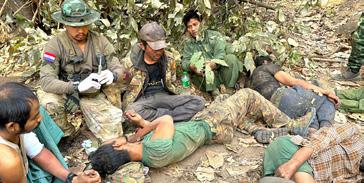


for years. Now you know what it feels like. The cause of the dictators is lost. Please give up on that idea! We are not better than you. We’re just people, but God has made us to love each other and help each other. We came here because of Jesus’ love, and we forgive you, and we give you a chance to live differently, please take it. Pray to Jesus, he will help change your heart.”
One of the women huddled with her wounded husband, who was a police captain. They held hands and looked into each other’s eyes. I could feel the love they had for each other. It was very touching.
Watching them reminded me that no matter what evil they’d been a part of, they weren’t completely evil.
As the fighter jets came screaming in, I pulled the couple towards me with both arms and shielded them the best I could. Our team did the same, shielding their former enemies with their own bodies. As the bombs hit, we felt the pressure wave, and fragments hit branches above us. We could see the bombers were slowly creeping in our direction, with the last impacts only 40 meters away. We should’ve been killed, but we were on low ground that dipped behind big trees. However, the next hit could kill us. We had to move.
We got on the radio and called Peter, asking him to get as many stretcher teams as possible and come to us. We loaded up those who could not walk and began the procession out, using a concealed route we had scouted out.
About 100 yards before the clinic, the Burmese woman who had been holding hands with her husband collapsed in front of me. She was overwhelmed by fear and crying, oblivious to the world around her. I carried her the rest of the way. When we arrived, she cried again and repeated, “Thank you, God bless you.” I helped her get to her husband, and, again, I could see the deep love they shared. I could also guess at their fears: they may be killed, or he might be killed for supporting the dictators as a police officer. They didn’t know if this was the last moments they were sharing
Opposite: An FBR volunteer gives medical aid to captured Burma Army soldiers and their families.
Top: A ranger donates blood to save lives at a frontline medical clinic.
Bottom: FBR medical teams work to save the life of a Burma Army soldier with blood donated by a ranger.
together. Seeing their love, I hoped they could change, that they could put the cause of the dictators behind them.
We gathered all the wounded prisoners and began to treat them. There were many serious injuries. One of the wounded had lost a lot of blood so one Ranger, Barnya, volunteered to donate blood. He lay down and looked straight at his former enemy as his blood flowed into the transfusion bag. The medical team then administered the transfusion, saving the soldier’s life. This was blood given for the enemy out of love, not spilled by an enemy in hate. The captives saw that we were giving them life, not death.
Both they and us received gifts that day. Their lives were spared and we had a chance to practice loving our enemy. We got to be part of God’s answer to hate – love. It’s hard to love and forgive the enemy, but it is the only way that hearts really change for the better.
Some of the team asked me, “How can we help these people, with what they have done to our team members and families?”
I said, “I don’t know. What I do know is Jesus told us to ‘Do unto others as you would have them do unto you.’ What does that mean for us?”
We pray and hope that all the Burma Army soldiers see the futility and evil of their ways. We pray that when they experience mercy it will break their hearts and they will not only love each other, like the police husband and wife, but they will learn to love others that are different than them. That is my hope for Burma.
KACHIN
The regions of Kachin and northern Shan State saw a major spike in conflict activity at the end of 2023, largely due to Operation 1027 launched on October 27th in Northern Shan State by the Three Brotherhood Alliance (3BHA) against the Burma Army. The ThreeBrotherhood Alliance consists of the Arakan Army (AA), Myanmar National Democratic Alliance Army (MNDAA), and Ta’ang National Liberation Army (TNLA) and was founded in 2019. Operation 1027 resulted in unprecedented successes for resistance forces, including the recapture of hundreds of Burma Army bases and positions. The operation has also helped trigger other anti-junta resistance offensives throughout Burma from other groups, such as the Kachin Independence Army (KIA) and the People’s Defense Forces (PDF). The KIA launched their own offensive in March, called Operation 0307, with the support of the PDF. As a result, the KIA have seized at least 126 Burma Army camps in Kachin State and have severely degraded the Burma Army’s ability to reinforce along key roads and highways.
The Burma Army is on their back heel in the majority-ethnic areas in Kachin and northern Shan states. They have conducted very limited ground offensives since Operation 1027, save for some intermittent patrolling and retaliatory strikes, often targeting civilians. This included the bombing of a displaced persons camp in October in which 29 people were killed and 57 injured and a December bombing in Namtu Township that killed 20 civilians near a base the Burma Army had recently lost to
(Opposite)
Top: Man Hka IDPs living in the farm fields.
Middle Left: Si Taung IDPs hiding in a makeshift jungle shelter.
Middle
Bottom:
the resistance. The Burma Army has largely relied on air strikes, artillery, and mortar strikes in attempts to hold their forward positions during the offensive. Even so, there were no reported Burma Army territorial gains, only significant losses of camps and headquarters positions.
Please pray with us as Burma enters this new chapter, a pivotal point in which the
various people groups of Burma have tangible hope that the tide is shifting against the regime in the conflict. We pray that the world would do more to support the democratic movements in Burma and we pray that freedom, peace, and reconciliation would become new realities across the whole country.

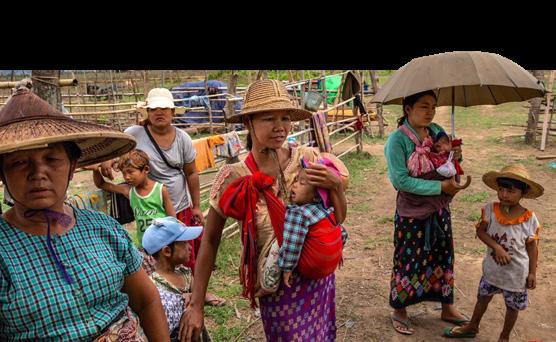

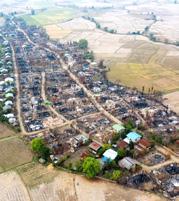

CHIN
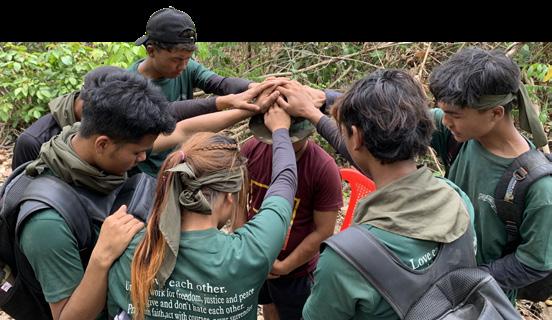
On day three of leadership and reporting training in Chin State, we saw a Burma Army MiG-29 roaring through the skies above. It flew out of sight, and a few minutes later we heard a distant boom. Tlanglo Village, about 15 kilometers away, had been bombed. The initial reports were that two people had been killed and several injured. We stopped to pray for the people of Tlanglo, and asked God what we should do. The Chin National Army had already evacuated and treated the injured, so we decided to send a reporting team to interview eyewitnesses and document the airstrike.
Six reporting students and two instructors piled into a flatbed truck and started out for Tlanglo. After three hours on difficult mountain roads, we arrived in the shattered and desolate village. The combination of large-scale destruction and utter stillness was unsettling. As the students climbed out of the truck, they stared all around, wideeyed, visibly disturbed and anxious. They had never seen a bombed village before. The instructors called the students together to pray first. We prayed for the victims,
for God to use us to help the people, and, through good reporting, to get the word out about what happened. We prayed for God to bless our interactions with people, and for God to fill us with His peace and love to give others. We said “Amen,” and started walking down the village’s main street.
We walked past shattered homeswindows and siding blown out. The homes closer to where the two 500-pound bombs hit were reduced to contorted piles of lumber and sheet metal. As we surveyed the damage, we were met by a handful of people there to guard the village (from looters) or to pick through their wrecked homes. The students wasted no time connecting with the villagers, asking questions and listening to their stories. They ascertained that 51 out of 81 homes were destroyed or badly damaged. Two people were killed: a woman in her 50s (a beloved schoolteacher) and a father of two. Eleven people were severely injured, including a six-month-old baby boy and an eleven-year-old boy. Seeing how the students listened to, consoled, and even prayed for people was extremely moving.
The expressions of fear and apprehension when they arrived had been replaced by love-driven compassion. The Holy Spirit grabbed them, gave them the right heart and the right words, and He used them just as we had prayed. It was amazing to see. It made me think of Nehemiah 9:20 when the Levites praised God for the many ways He provides for and leads His people by praying, “You gave your good Spirit to instruct them.”
The team stayed in Tlanglo for about two hours, taking pictures, interviewing, taking notes, listening, crying with, and praying for people. When it was time to go, two students were nowhere to be found. Slightly annoyed that these students were late, we began searching for them. I eventually saw them in the shattered but still standing home of an elderly villager. As I came closer, I could see through the missing siding that their heads were bowed. They were praying for the elderly man. It felt like I had stumbled upon a holy place. With reverence and awe, I watched them pray, and I lifted up my own silent prayer. I thanked the Lord for using these
Opposite: Spiritual leadership students pray for a man who lost family in airstrikes.
Top: A destroyed home in Tlanglo.
Middle: A spiritual leadership student.
Bottom: Two volunteers run medical clinics in Chin State.

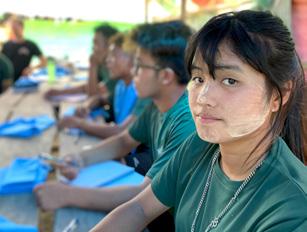

The expressions of fear and apprehension when they arrived had been replaced by love-driven compassion.”
students to be ambassadors of God’s mercy and peace. God used these faithful students to not only conduct interviews and write a good report but also to bring help, hope, and God’s love to this man amid extreme loss.
We then headed back to camp to debrief and have a follow-up reporting class. It was wonderful to see how they took what they learned and put it into practice in such a direct way. It was a true joy to see them grow in their ability and confidence as reporters and see how they were stretched and grown as spiritual leaders. They didn’t just interview people and gather information. They ministered to people, prayed for them, and gave them hope. They also grew in their desire and passion to love and help others. The students said the experience made them want to keep helping people more and more. For everyone, it seemed like a small spark had been fanned into flames. Pray that God will continue to fan that flame and bring to completion the good things he started in them. And pray that God’s good Spirit will continue to instruct and guide them.
SHAN

IThere is a high possibility that there will be no more help to them again. Therefore, they have to live with fear and insecurity. ”
n May 2022, two years ago, waves of villagers fled their homes in the Pekhon, Moebya, and Loikaw areas of northern Karenni and southern Shan states as fighting increased between the Burma Army, Pa-Oh National Organization, and People’s Defense Force (PDF). Today, still unable to return home due to the danger of becoming human collateral of war, these villagers are some of the millions of others across Burma struggling to survive as long-term internally displaced people (IDPs). In southern Shan State, many IDPs seek refuge in closed-down schools, temples, or churches, which serve as makeshift dwellings. IDP camp populations fluctuate as people move to find work or try to get into bordering countries; however, IDP camp leaders affirm that numbers in general are growing. The more vulnerable populations such as women, children, and the elderly, make up the majority of the people in these camps and are forced to find a way to survive without a source of income, education, healthcare, food and other basic necessities.
In April 2023, an FBR Shan team brought help, hope, and love to 674 households throughout nine different IDP camps in this region. The team met with each IDP
camp committee, distributed funds, food and medicine, encouraged and prayed with the people, and put on Good Life Club programs for the children. The villagers thanked FBR for visiting and for not forgetting them.
After these camp visits, one Shan team member reflected on the situation in Shan State, saying that even though they have escaped the fighting, “The damage is still there. Many IDPs in Burma still suffer after they flee to a new place. Even some of them survive, some of them have trauma. The saddest thing for me is to obviously see the children have no future because the fighting in Burma causes them to not be able to go to school. Then, how can they have the education? This is important, when education is the foundation of life. All of the IDPs have a low life quality. The assistance from other organizations can help the IDPs only with immediate problems. They get help from others only at the beginning of the time they fled to a new place, after that they have to survive by themselves. There is a high possibility that there will be no more help to them again. Therefore, they have to live with fear and insecurity.”
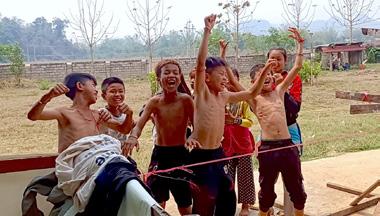

Opposite: A Junior Ranger exercise during a GLC program; encouraging older children to think critically and work together.
Top: Young IDP boys laugh during a Junior Ranger exercise.
Middle Left: Young girl smiling in her home.
Middle Right: Rangers and villagers laugh and play games with children during a GLC program.
Bottom: Rangers cheer with Shan children after a GLC program.
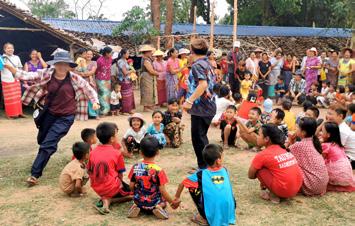
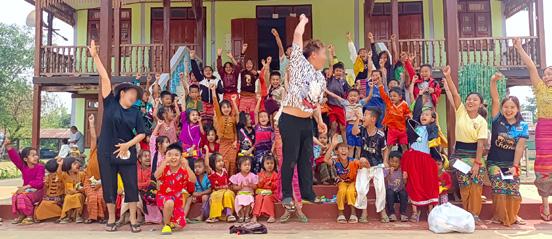
MIDDLE EAST
Deir ez-Zor, northeast Syria: Rockets came screaming in, impacting all around us. Iranian militias were firing at the Syrian Democratic Forces (SDF), American forces, and us, as they promised they would. We were at an SDF position during these first strikes, and had come out of the buildings and were on the ground against a wall, ready to help any wounded with our ambulance and medical bags prepped. We were also praying. 30 rockets later, we’d survived shrapnel flying all around us, and thanked God that no one was wounded. However, three Americans had been wounded in a different area, totaling over 50 Americans wounded in the last month from Iranian militia attacks, while the number of local civilians and soldiers who were wounded or killed was several times this.
There have always been attacks and threats by Iranian militias in Iraq and Syria against American and Kurdish forces. However, after the U.S. support for Israel, these militias are energized even more. They promised to attack, which they did and they still are, every single day. As one Kurdish leader told us, “The Iranians are fighting in wars all over, but they don’t use their own soldiers. They attack and destroy using proxy forces in Iraq, Syria, Gaza, and Yemen.” The Iranian government also provides military support to the dictators in Burma as they kill their own people, as well as the Russian military as they kill Ukrainians.
Since the beginning of the attacks by ISIS in Syria and Iraq, we were invited and then felt God call us to come to stand with these people and share His love. This place, Deir ez-Zor, is special because it was the site of the defeat of ISIS and the loss of their last territory, in 2019. We were here for that as well.
There is a verse in the Bible about taking care of your enemies, and by doing so, you heap burning coals on their head. We experienced that as we gave food, water, and medical care to defeated ISIS members. Many of them cringed with shame that we, their enemies, were helping them. But some also burst into tears when we prayed with them. We fed 25,000 of the 35,000 that fled in the two months of the battle of Baghouz. For us, it was healing amidst all the evil we had seen. The ISIS members we helped were mostly women and children who surrendered. There were a few men as well, and we were able to share the love of Jesus with many of them. Most of the ISIS women still threatened us but about one in 10 would say thank you. And some of those, when we prayed with them, began to cry and said they were sorry.
This reminded me that anyone can change, like the story of the apostle Paul, who was murderously against Christians. Jesus met him and changed him and he changed the course of Western history with his evangelism. Anyone can change, and this includes ISIS.
Now, in 2023, we were back in Deir ez-Zor. We had come in 2022 and done children’s programs in the very areas where the fighting was in 2019, and we had promised two playgrounds. Our staff put them in, one in a town called Suer and the other in Baghouz. We had also promised two ambulances to the SDF to move civilians and soldiers in need of medical care. We were able to provide those as well. Thanks to Reload Love for the playgrounds, and for those of you who helped us provide the ambulances. These gifts are life-giving and life-saving.
When we came this time, the SDF opened the way for us to come down. One of our team members, Mohammad, who was
wounded six times by ISIS in the battle of Mosul, had been with us in Baghouz. At our children’s program, he stood up and said, “Do you remember me? We fed you. We treated some of your wounded. We come in love and in peace.”
Many of the children, as well as men and women, nodded their heads, and said, “Yes, we remember your help for us. Thank you. You are welcome here.” The children’s program was full of joy and laughter, not just among the children, but among the mothers and fathers too.
At the end of the program, we gave out shirts and food and I met with the teachers. Most of the women were in full hijab and I could only see their eyes. I started off by saying, “We are here in love, in Jesus’ name, because He loves us and He loves you. You can call on His name anytime. It doesn’t matter your religion. You can call on Him. He loves you. God sent Him to help us.”
I also apologized, saying, “You know, my country, America, we try to do good but we’re not God. And we’re not the devil. We are just people trying to do our best. And we have accidents; we make mistakes. We’ve killed your people unnecessarily. It wasn’t just ISIS. We know that. I’m so sorry. Please forgive us. I love my country, but I don’t look at us like we’re different than you. We’re just human, trying to do our best. And I believe America should be here. We cannot fix every problem. We cannot fix the problem here, but we can stand with you and help there be a space for you all to work out how to share this country together.”
They all nodded their heads in response. I saw tears come to some eyes as they also came to mine, and I felt love between us. They said, “Yes, America, please stay. We need you to protect us.” I told them that we don’t work for the government, but
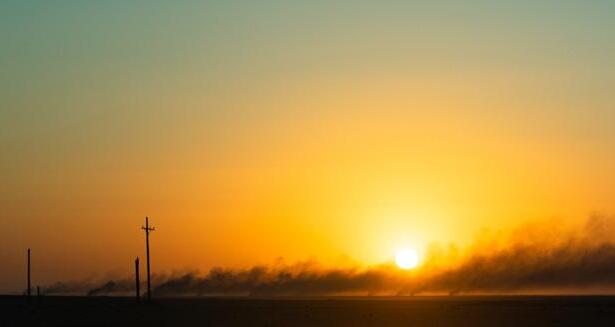
Bottom
Bottom
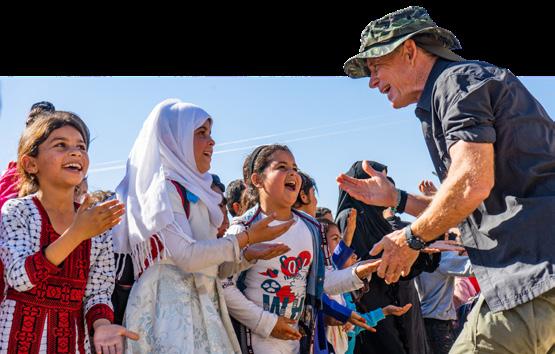
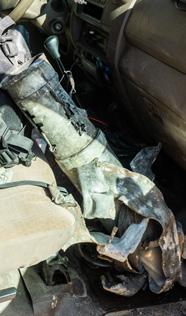
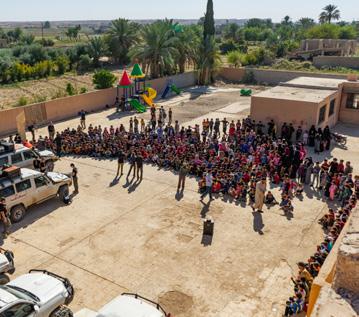
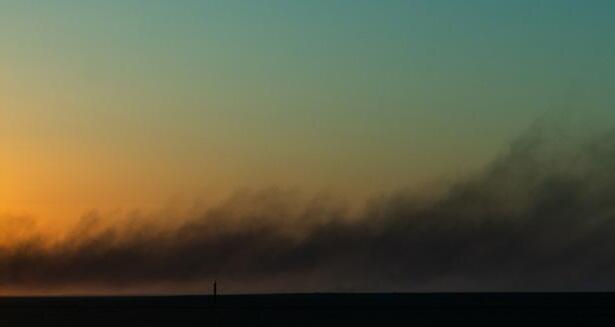 Top: Dave Eubank dances with Syrian children in Baghouz, once an ISIS stronghold.
Left: Remnants of a rocket launched at FBR teams in Deir ez-Zor.
Right: GLC program in Bagouz.
Top: Dave Eubank dances with Syrian children in Baghouz, once an ISIS stronghold.
Left: Remnants of a rocket launched at FBR teams in Deir ez-Zor.
Right: GLC program in Bagouz.


Christians, who care about and pray for them, supported us to come and help. They understood this and said, “You are welcome anytime. Please keep coming back, you make us feel less lonely and make us feel like we count.”
The Kurds, the Christians, and the Arabs, like those in Baghouz, are trying to form a new society. It’s very different from the dictatorship of Assad, or the dictatorship of the Iranians using Iraq as a thoroughfare.
It’s an attempt for a grassroots democracy. I asked one local Arab leader what he thought about the people around him and the different powers. He said this: “Right now the biggest problem for us in northeast Syria is actually the Turks. They bomb us with air strikes and drone strikes. They hit our infrastructure. They commit war crimes. Also, the Iranians attack us. The Iranian hand is in all these things, especially with the Assad government, keeping them going

and poisoning everything and attacking us. And then there’s Assad’s government: they will kill you. And the Russians are behind them, up to no good. And then there’s ISIS. Now they’re small, but they’re still a threat.”
I asked, “What about the Syrian Democratic Forces? What about this new government in northeast Syria?”
He answered, “Well, we don’t agree about everything, but you can talk to them. They’re not at all the same as any of those other governments. When you have a disagreement or a problem with the Syrian Democratic Forces, you can negotiate, you can talk. You aren’t just locked up, taken away, and executed, which is what will happen with every other group. So yes, we may disagree on many accounts, but they are the best option we have now and we hope America can see that and support them. First of all, for the sake of humanity, for us Kurds and Arabs and Christians and others, but also to block Iran, because Iran will destroy this place. So please stay with us.”
One of the last stops on this trip was in the town of Tel-Tamir, where one of our Rangers from Burma, Zau Seng, was
 Left: The FBR team visits the Zau Seng Memorial Hospital in Tel-Tamir.
Right: An FBR volunteer hands out treats during a GLC program.
Bottom: FBR volunteers share at a church in Kobane.
Left: The FBR team visits the Zau Seng Memorial Hospital in Tel-Tamir.
Right: An FBR volunteer hands out treats during a GLC program.
Bottom: FBR volunteers share at a church in Kobane.
killed by Turkish forces in 2019. Zau Seng was our Kachin photographer and medic who was killed on November 3rd, 2019, when Turkish forces and their proxies, the Free Syrian Army, invaded northern Syria, displacing over 400,000 Kurds. We were later asked to build a hospital in TelTamir. We prayed and decided to do it. With the generous help of many people, it was recently finished and is named after Zau Seng. However, they still need funds to buy necessary medical equipment to put in the hospital, such as x-ray machines, surgical suites, beds, oxygen systems, and a maternity ward.
On the way out we met with General Mazloum Abdi who is the commander of the SDF. He is a wise and kind man and doing his best to serve all the different communities and faiths in Northeast
Syria. He and the SDF offer the best hope of positive change in Syria. We appreciate very much the international community standing with General Mazloum and the Kurds, Arabs, Christians, and Yezidis who make up the SDF.
Everywhere we went we prayed and we had a chance to talk about our hope, which is Jesus. We prayed that any governance without love would fail. We shared that when we run out of love, Jesus is there to forgive us, help us forgive others, and refill us with love. Thank you for praying for the people of northeast Syria as they try their best to live a better life surrounded by many enemies. They, like us, are not perfect at all, but we pray they can act in love, forgive their enemies, and be part of building new relationships together.

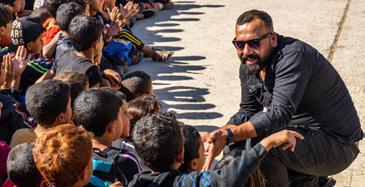
Top Left: An FBR volunteer enjoys a GLC program with Syrian children.
Top Right: The FBR convoy prepares to leave from Raqqa.
Bottom Left: A local FBR volunteer greets children during a GLC progam in Baghouz.
Bottom Right: Karen Eubank and a local FBR volunteer lead a GLC program in Baghouz.
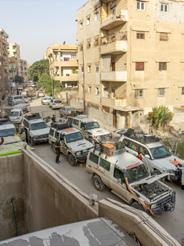



We were on a relief mission in Burma when the Russians invaded Ukraine two years ago. Although the situation in Ukraine was terrible, and they needed help, they were getting a lot of support from all over the world, while in Burma, there is almost no help and nothing to stop the Burma Army ground and air attacks. So, while we were asked by different groups to come and help in Ukraine, we continued to focus on Burma while we prayed for the people of Ukraine. But that changed when God opened a way for us to help in Ukraine. A Ukrainian woman comes to help:
One year after Russia’s invasion, a young Ukrainian woman named Julia, who married one of our volunteers, Kingsley, asked if she could come to Burma. I asked her why and she said she wanted to share in the suffering because now the people of Ukraine know what that is like. So, she came with us on a relief mission. At every GLC program, she would stand with a Ukrainian
flag and tell the people, “We know what it’s like to suffer. I’ve lost my brother already, killed by the Russians, and my father is on the front line, and I don’t know now if he’s alive or dead.” Tears would come to her eyes as she said, “We are the same as you and we want to share with you that God loves you. Jesus loves you, please don’t give up praying. Don’t feed your fears, feed your faith. We are with you and Jesus is with you. Keep asking Jesus and He will show you the way.” At that point I realized maybe we could do something in Ukraine; maybe we could take a small team and stand with the people in Ukraine. We prayed together and, right away, Eliya, one of the Karen cofounders of FBR and the first Ranger, said, “I want to go. We need to stand with those people. People have helped us; we should help others.”
We formed a small team consisting of my family, Eliya, and his sons Thomas and Poedu, and Sky, an FBR medic who had already been there. In August of 2023, we
went on our first Ukrainian mission. We were helped with access and guidance by several very good organizations there, and also reunited with Julia, who helped us along the way.
No safe place:
On our first day in Ukraine, as we were driving in from the west, there was a missile strike against the oil refineries of Rivne. We saw the thick billows of black smoke and Suuzanne said, “This is just like Burma, the Russians attack the same way the Burma dictators do.” As in Burma, there are daily rocket, drone and missile strikes all over the country. We arrived in Kiev for meetings with local relief organizations, Ukrainian chaplains, and Ukrainian officials. We also met Samaritan’s Purse, who gave us Ukrainian Bibles and children’s Bibles, which my wife Karen handed out to men, women and children in every place we visited. We told all we met that we had come to help in any way we could and, even though we were small, we believe God is
Opposite: Flags of Ukraine, USA and friends in Burma in the ruins of a church destroyed by Russian tank fire.
Top: FBR donates generators for the Ukrainian Police.
Bottom: Destroyed school in Nevsky.


big, and we wanted to help in Jesus’ name. The first morning in Kiev, there was a Russian missile attack. These missiles were intercepted by the Ukrainian air defense systems, and were blown up above us. Around the outside of the city, ruins of homes and buildings in Bucha bore testimony to how close the Russian forces came to Kiev in the beginning of the invasion.
To the East:
From Kiev, we went east. We visited destroyed village after destroyed village along the front between the Ukrainian and Russian forces, from the Luhansk area down to the Donetsk area. We met, and became close to, a group of Ukrainian chaplains ministering to the soldiers and civilians.
These chaplains are a united group of Christians: Catholics, Orthodox, SeventhDay Adventist, Evangelicals, Messianic and many other Christian denominations. They are bound together in love, and in faith that God has not abandoned the people of Ukraine. They realize this is not only a physical battle, but also spiritual. They told us they need training to help chaplains provide spiritual, emotional, and mental support near and at the front lines. There are not enough chaplains for the Ukrainian Army. And, amongst the Foreign Legion of International Volunteers, we were told there are no chaplains. From this chaplain group, one Ukrainian volunteer, Katherine, whose husband is a local pastor, accompanied us as translator and guide.
I want to go. We need to stand with those people. People have helped us; we should help others. ”
On the eastern front, we were also hosted by the local police, who often are at the front lines defending the people and taking care of them when strikes come in. The police have formed teams of what they call “white angels,” to go into areas under attack and help rescue people. As the power was often knocked out, they told us they were in great need of generators as well as mobile lighting systems to help when they’re trying to do rescues after missile strikes. They also need more vehicles, including armored vehicles, to help evacuate people. We told them we would share their needs and pray for them. We were able to immediately help with five generators for five different police stations that had been hit by the Russian military. We also provided medical training to police from many areas scattered along the worst-hit towns. Our team, led by medics Eliya and Sky, and with help from local partners, did a tremendous job of training these police officers. We opened each training with prayer and encouragement for them to call on Jesus. After the training was completed, our friend Christian, who leads a local aid group, told his story of what Jesus had done for him, and how Jesus loves and would help all the police officers here. Following this,
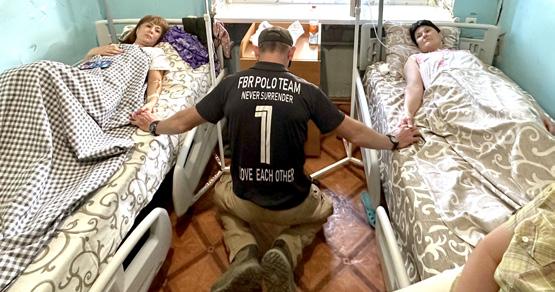
our team would give some food assistance, as well as toys and encouragement for the children. It was very touching to be with these families. We could see the uncertainty and fear in the eyes of the children and yet their smiles shone as they were given love and attention.
We also visited area hospitals, which were full of wounded soldiers and civilians. The attacks are continuous and so most of the hospitals have had to move their operations into cellars for safety from bombs. These have little airflow and are moldy and wet. Walking through a hospital with cracked walls, blown-out windows, and running on emergency power as surgeons tried to save lives, was heartbreaking. The doctors came to us with a list of medical instruments and medicine that they needed. They said people are helping but it’s not enough; there are too many casualties. “Please ask people around the world to help us with more medical supplies so we can save these people,” they said.
We prayed for many of the wounded. One woman said, “Yes, I believe in Jesus, I believe He’s with me and He sustains me. Thank you for coming as servants of Jesus;

we feel God’s presence with you. Please tell people around the world don’t give up on us. We need everyone’s help and we pray to God for that. Thank you so much for coming.” The woman, whose legs were badly wounded, began to cry and thanked us as we prayed for her. She also cried as she described being rescued after a heavy missile attack. She had been out milking her cows when the Russian missiles came in. She said the terror has never left her. We met many people like this woman during
our time in Ukraine and prayed for them and told them we would share their stories. We visited a newly-liberated village to see how we could help. As we were going through the destroyed school, Russian missiles went over our heads and slammed into a village behind us. Despite the danger, the village headman took us to his home and gave us coffee and cookies while we asked him how we could help. He said, “We hope that the Russians will fall all the way back to Russia and that we can move
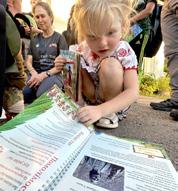
back, but as you can see, most homes are completely destroyed by bombs and shells. Some are still standing but even those have lost windows. Can you help us with some sturdy plastic windows that won’t shatter when shelling occurs nearby? Winter will come, and if anyone can stay here, we will need windows.” We prayed and agreed that we would do our best to help with windows for this village. We plan to do this through one of the local organizations who helped us on this trip.
From there, we met American and European members of the foreign legion who had come to help stop the Russian invasion. These men are brave, committed, professional and love the people of Ukraine. They are very effective in slowing down the Russian advance. Over 200 of them have died, with many more wounded. Still, they dare to stand with the Ukrainians in the name of freedom. We prayed with them and encouraged them to call on Jesus’ name and let Him guide them in all they do. These men are heroic and helping to support the Ukrainian military in saving the people of Ukraine. We saw the bravery of the Ukrainian soldiers and their good cheer, even though they are in the midst of deadly attacks. As we prepared to leave, Sahale sang a Ukrainian song of love, faith and hope that Julia had taught her. This brought the police and others with us to tears and we felt the bond of love grow deep.
Our plan is to bring small teams of
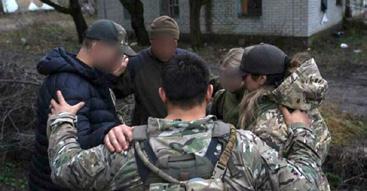
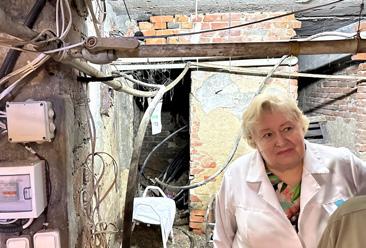
chaplains and medics from FBR to work alongside the Ukrainian chaplains, to give spiritual and medical training, and medical care at and near the front. We also pray for the Russian government and the Russian military, that their hearts would change. We pray that they would fall back and that they would not stay in Ukraine. We pray for reconciliation one day.
Over 500,000 people have been killed and wounded in this war so far, and, since writing this, many more have been killed, and some of the volunteers we met have been badly wounded. The people of Ukraine need a massive infusion of humanitarian relief and military help to enable them to
survive and stop the Russian onslaught. I believe it is only with prayer and enough force to stop the Russian attack that there will be the possibility of negotiations and an end to this fighting.
Opposite Top: Dave Eubank prays for wounded civilians.
Opposite Bottom: Eliya prays with Ukrainian chaplains.
Top Left: A Ukranian girl participates in a Good Life Club program.
Top Right: FBR chaplains pray for medics and chaplains.
Bottom: Underground medical care.
JUNGLE SCHOOL OF MEDICINE
On March 5 of this year the Jungle School of Medicine-Kawthoolei (JSMK) will graduate its 14th class of medics. Among the inaugural ‘Class of 2011’ alumni still with us are Toh Win, Say Kweh ‘Silverhorn’, and Hser Eh Htoo, who have transitioned from students to coordinators, teachers and directors since the school’s inception. The value of their tenure, and that of the rest of our senior staff, is felt more strongly each year. They exemplify the truism that quality leadership is our most critical resource and our best investment. Gather about you intelligent and motivated people, believe in their potential, and see great things happen. The progress of JSMK can be symbolized by the recently-completed bridge linking the two sides of our valley settlement. In 2011 the ‘bridge’ was little more than a bit of
wobbly bamboo scaffolding. Today it is an exquisitely designed and engineered piece of solid infrastructure constructed to last for decades. That opening year JSMK was little more than a couple of flimsy buildings, a modest stock of basic pharmaceuticals, our stethoscopes, and a can of urine dipsticks as a lab. This year we are running a prenatal care program, childhood vaccination program, an inpatient hospital, a five-dayper-week outpatient clinic, basic dental services, and a rotation of surgical efforts, both general and ophthalmological. We have a designated lab staffed by a trained lab technician, an operating room, a labor and delivery suite, an expansive pharmacy and supply department, x-ray, and ultrasound capabilities. Among surgeries performed are cataract removal, wound and amputation revisions, appendectomies, hysterectomies,
bowel resections, orthopedics, and skin grafting.
As we grow so does our networking relationships with other medical services in rural Burma, including educational collaborations. As I write this, we have medic graduates gaining further training, some working on the current front line as first responders to the battlefield wounded, and others serving their people in ethnic villages.
As we look to the next ten years we feel deep gratitude to our supporters, both those who support our volunteers and those who support our projects and equipment. Please pray that God will guide our resourcefulness and wisdom for the opportunities and challenges ahead.


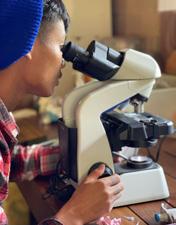

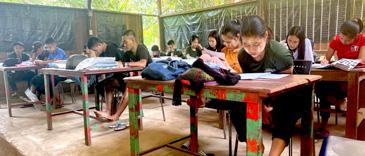
Opposite: JSMK medics treat a wounded soldier in Karenni State.
Top: JSMK students study together.
Middle Left: A JSMK medic uses a microscope to look at a patient’s blood.
Middle Right: A JSMK medic does dental work on an IDP.
Bottom: JSMK students take a test as part of their training.
FBR TRAINING
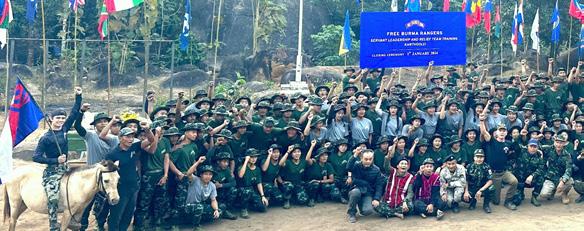
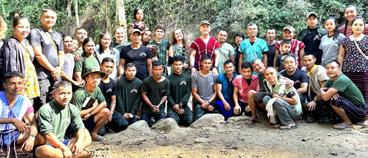
Tah U Wah Camp Training officially began on 16 October 2023 after physical training (PT) tests were given to students who wished to enter the course. 165 basic students received training over a two-and-a-half-month period covering a range of topics, such as: climbing, rappelling, leadership, land navigation, swimming, operation orders, reporting, security, medical, and Good Life Clubs (GLC).
Concurrently, 50 advanced students conducted refresher training in October and then split into more advanced training in November and December. Advanced training went into the Good Life Club program and the advanced students were able to lead GLC. Advanced students were
also placed in charge of basic students on numerous occasions. The advanced students clearly earned the respect of the basic students by demonstrating how to maneuver through training activities and successfully complete the rigorous course.
The students conducted four Field Training Exercise rotations that pitted their newly learned skills against multiple station events to challenge them and apply what they had learned in the previous weeks. Six days a week the students participated in physical training twice a day. This PT was split between calisthenics, running or walking while carrying loads, and handto-hand combat. The students grew in strength and endurance while at Ranger training.
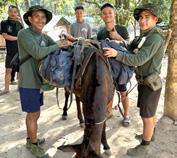
3
Every Sunday was a rest day for the students and Christian services were offered to those students who were interested in attending. Once a week, a Christian Bible study was offered to anyone interested. Many students attended and learned a great deal about the Christian faith through question and answer sessions.
After graduation, Rangers had an opportunity to put their new skills to work on a real mission serving inhabitants of the nearby area while under the supervision of Ranger instructors.
After this last event of their training, they returned to their home areas, ready to conduct their own missions. They learned many new skills that will enable them to help their people and fight oppression.
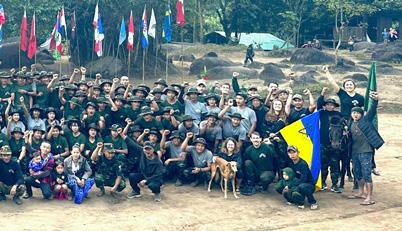


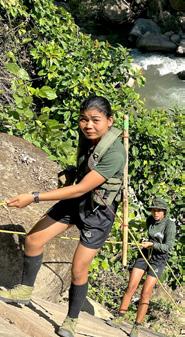

LEARN
Leadership Principles
Map Reading and Drawing
Compass
Reading
Land Navigation
GPS (Global Positioning System)
Landmine Removal
Swimming and Lifesaving
Solar Power and Battery Management
Human Rights Violations
Recording and Reporting
Video and Photography
Medical Training
Field Training Exercises
Physical Training
Rope Bridge Building
Poncho Raft
Rappelling
Good Life Club Training
Counseling
GOOD LIFE CLUB
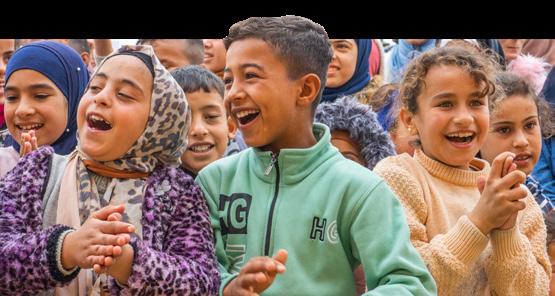
“The thief comes only to steal and kill and destroy; I have come that they may have life, and have it to the full.” — John 10:10
Filling the Gaps
During war, when families and communities must flee for their lives, education is often one of the first aspects in the normal life of a kid to be lost. The GLC team tries to meet teachers and families in all the places they go, learn the education situation and learn how we can support it. The following educational elements are part of the GLC program:
- Spiritual education: The GLC team teaches a spiritual lesson with a skit during most programs.
- Cultural/geographical: GLC team members come from all over the country and the world and take time to introduce themselves and their homes to the children wherever they go.
- Basic health and hygiene education: The teams provide a lesson in basic health and hygiene, teaching some basic practices and ideas to protect against preventable illness.
- Junior Ranger: When appropriate, some Rangers will separate the older kids and teach them some basic ranger skills, such as leadership, reporting, medical care, or navigation, to foster leadership and capacity-building in the communities they visit.
- School packs: Ranger teams leave resources, including sports equipment and educational supplies, with the teachers of the schools they meet on their missions.
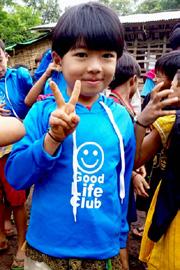
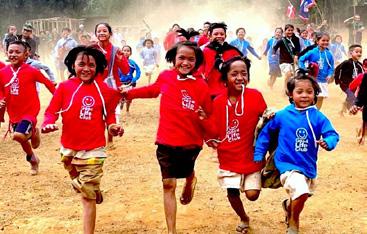
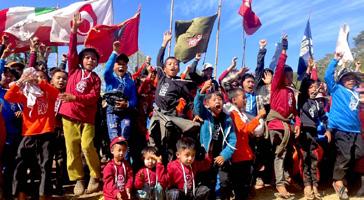
Here in Karenni the unnerving sounds of mortar and airstrike explosions, both near and far, are just that: un-nerving, hitting a sore spot of the soul, an instant jolt that something is devastatingly wrong in so many ways. It makes you both jumpy and fatigued at the same time.
Thankfully we shared in the prescription and treatment with many displaced families during our May-June mission in Karenni State. “A cheerful heart is good medicine,” says Proverbs 17:22, “but a broken spirit dries up the bones.” Even in rainy season here, it’s easy to feel dry: brittle and ready to snap. But experiencing daily life with the villagers these last two months, I can testify
that the songs, dances, and dramas of the Good Life Club, along with the villagers’ enthusiastic participation, provided the cheerful medicine that was desperatelyneeded refreshment.
In the 14 programs we gave this trip, the teams’ comedy had both adults and kids, groups ranging in size from 50 to 500, belly-laughing at their antics. Thirty onstage Rangers accompanied by a band of guitars led inspiring songs and invigorating dances. The Shadrach, Meshach, and Abednego drama reminded us all of God’s faithfulness; the Love Boat skit gave the example of Jesus’s personal relationship with us as a friend dives into the water to save someone drowning; and the malaria
Opposite Top: Syrian children from Dadat school enjoy GLC songs.
Opposite Bottom: A Karenni child poses in his new GLC shirt.
Top: Karen children run across the field during a GLC program.
Bottom: Karenni children cheer during a GLC program.
Right: A Syrian girl holds the gifts she received during a GLC program.

drama included kids from the audience to teach healthcare. We joked, laughed, sang, jumped and danced together. Because of donations from people around the world, we could also give medical treatment, tarps for families living in forest hidesites, and financial assistance to IDP camp committees, churches, schools and clinics. Waving goodbye to kids in their GLC hoodies and gospel bracelets, our shared smiles accompanied a ‘good tired:’ refreshed, re-energized, hopeful, and stronger in spirit. We’d given and received an antidote for fear. May cheerful hearts be overwhelmingly contagious, infusing these families with Jesus’s courage in body, mind, and spirit.
INFORMATION
Getting the news out is one of the primary objectives of Ranger teams.
To meet this objective, all Rangers are trained to identify and document human rights abuses and create reports to be shared all over the world and disseminated to media organizations, other aid organizations, governments concerned about the situation and others who are interested. The teams learn to take videos and photos and conduct interviews with the people they meet, and use them to tell people’s stories. Villagers, local leaders, teachers, soldiers and others who have experienced violence or oppression are given a voice through Ranger teams who stand with them and give help, hope, and love, whatever the situation.
Ranger reports are catalogued, collated, photos and videos filed, translated when necessary - and shared all over the world. We desire to bring change by catalysing action in those who see our reports. We also desire to recognize the intrinsic dignity of those we serve by sharing their story, because every person counts. Their story is part of our story and so we stand against any oppressor or power who would silence them.
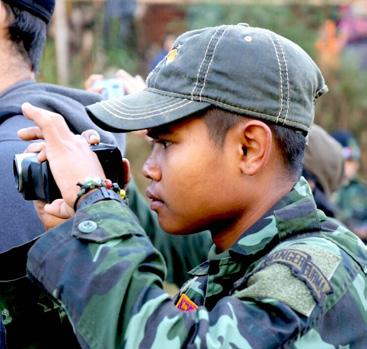
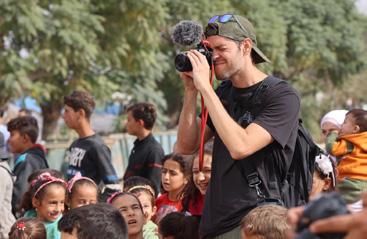
AVIATION
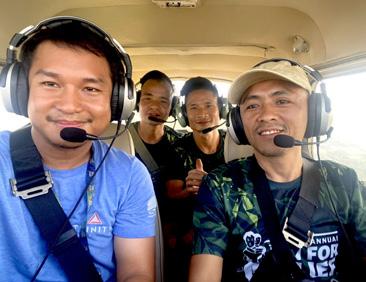
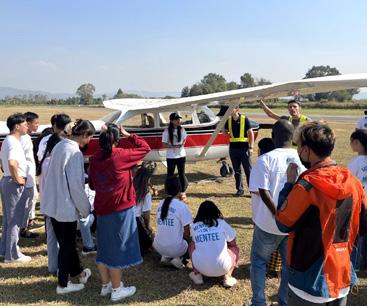
his year, FBR aviation conducted its mission of help, hope, and love from above by providing patient transportation services to patients, as well as moving people and supplies to support the Rangers on the ground. The day would often start with a call from one of the operations or medical team asking if the aviation team could transport a patient needing to reach a higher level of care. What could be a five hour drive through twisting mountain roads takes about an hour straight-line in the airplane. What could be up to an 11-hour day of driving can be about a three-hour day to get to the border areas, pick up patients, and fly back. For especially sick patients, this saved time can be crucial. There is also a wonder and joy that you see in people’s faces the first time they get to fly that is infectious. FBR aviation is dedicated to bringing help, love, joy, and inspiration to oppressed people in Jesus’ name. The team believes that God’s gift of aviation is for everyone, including the poor, and the oppressed, and is grateful that God has given them this gift to share with the people around us.
TAnother way we get to share that love is by doing presentations at the local airfield for school kids, and foundations for orphans that want to get young people interested in aviation and the various careers and opportunities available in the aviation industry. We are able to reinforce the idea that God’s gift of aviation is for everyone, and that anyone can fly.
CHAPLAINCY
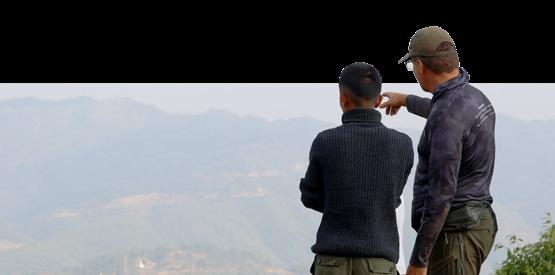
Teaming up with local Christians multiplies opportunities to bring help, hope, and love in Jesus’ name to those in need – especially soldiers and IDPs. Partnering with local pastors and chaplains, we ministered to some of the most battle hardened soldiers fighting on the frontlines. We often see in their faces detachment and haunting signs of fatigue mixed with fear. It is in this setting that we can bring a Christian presence, share God’s word through short devotions, and pray for each person. One of the most powerful things I witness is blank expressions giving way to smiles, laugher, joy and hope.
On a recent mission our team stopped in a village in southern Chin State. From the local pastor we learned that many Buddhist IDPs were living in the jungles on the outskirts of the village. He shared with us how he ministered to them by befriending them, regularly visiting, bringing food and supplies, sharing God’s word, and praying for them. We learned so much from him about sharing the love of Jesus. With the pastor’s help, we were able to gather about 80 IDP children and their families and do a short VBS style program called Good Life Club. There was dancing, singing, drama, crafts, and of course Jesus. Laughter and joy and praising God replaced fear, darkness, and isolation. Some of the parents shared that those two hours together brought a sense of belonging, joy, and hope – and it
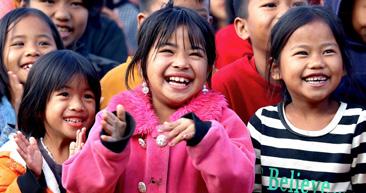
helped them experience God’s love more clearly than they ever had before.
Teaming up with and walking alongside local Christians mutually encouraged and equipped everyone to keep bringing help, hope, and love in Jesus’ name in new ways. God is glorified and God’s kingdom comes into even the darkest places when Christians from every walk of life mutually encourage and build one another up to share the love of Jesus.
What’s Ahead?
There are endless opportunities to partner within FBR to bring help, hope, and love in Jesus name. This led us to rename the Chaplain Department the “Chaplain Ministry Department” this year
to create space for people to serve in other gospel-centered capacities outside of the chaplaincy. We are excited to continue building our team to grow our ability to care emotionally and spiritually for people, share the hope of Jesus Christ, and prepare other leaders to do these things!
We will launch in October 2024 a 3-month Relief Team Chaplain Training to run concurrently with Ranger training. This is an opportunity for Basic Trained Rangers to return for specialized training similar to our Advanced Rangers and Medics. Please pray for us as we work to build one another up in love and partner to serve for God’s glory and the good of those in conflict zones.
FINANCE
TOTAL EXPENSES
TOTAL REVENUE $6,592,126 $6,030,188
Free Burma Rangers (FBR) is funded by donations from individuals, churches, and other organizations from around the world. We are encouraged by and grateful for all of those who give to support the work of FBR. Free Burma Rangers is registered in the United States as a 501(c)(3) organization called Free the Oppressed (FTO). FTO is inspired by the words of Jesus in Luke 4:18-19: “The Spirit of the Lord is upon me, because he has anointed me to preach good news to the poor. He has sent me to proclaim freedom for the prisoners and recovery of sight to the blind, to release the oppressed, to proclaim the year of the Lord’s favor.”
FBR uses Thai Baht, Iraqi Dinar, Myanmar Kyat, Syrian Pounds, and U.S. Dollars (USD) currencies in its operations. The numbers here reflect the totals in USD using the actual or average conversion rate of each currency. During 2023 we continued to witness some of the worst fighting we have seen in Burma, and we are thankful for our faithful supporters that continue to answer the call to help the oppressed where ever God calls us. Our message continues to be the same, to be ambassadors for Jesus and to share His love. The 2023 expenses were more than we took in from donations because of the overwhelming humanitarian crisis caused by the Burma Army coup. We funded the shortfall out of our surplus from prior years. We also continue to help in Syria, Kurdistan, and with Afghan refugees. Thank you for helping us bring help, hope, and love to the oppressed.
BURMA OPERATIONS
$4,277,544 - 65.0%
MIDDLE EAST OPERATIONS
$890,764 - 13.5%
THAILAND OPERATIONS
$819,115 - 12.4%
MANAGEMENT AND GENERAL
$409,890 - 6.2%
ADVOCACY
$147,365 - 2.2%
DONATION PROCESSING FEES
$47,448 - 0.7%



Free the Oppressed participates in several matching programs, including:
1. www.benevity.com (used by companies including Apple, Google, and Microsoft for employee matching)
2. www.cybergrants.com (used by companies including Caterpillar, Nike, Nordstrom, and Walmart for employee matching)
3. www.yourcause.com (used by companies including ATT, Dell, AMD, Chevron, Nvidia, Samsung, and Best Buy for employee matching)
Free Burma Rangers is approved as a charity to receive donations from federal employees through the Combined Federal Campaign. See more at cfcgiving.gov, CFC#: 40763.
Free the Oppressed DBA Free Burma Rangers has earned a 2023 Platinum seal of Transparency from Guidestar.org. Please see more at www.guidestar. org/profile/47-4648581
FBR/FTO is committed to integrity and is a member of the ECFA. Read more at www.ecfa.org.
Donations can be made online at www.freeburmarangers.org or through the mail at:
Free the Oppressed PO Box 912938 Denver, CO 80291-2938
Audited financial statements and IRS 990 tax returns are available on our website. Email questions to giving@freeburmarangers.org.
IN MEMORIAM







Saw Hser K’Paw
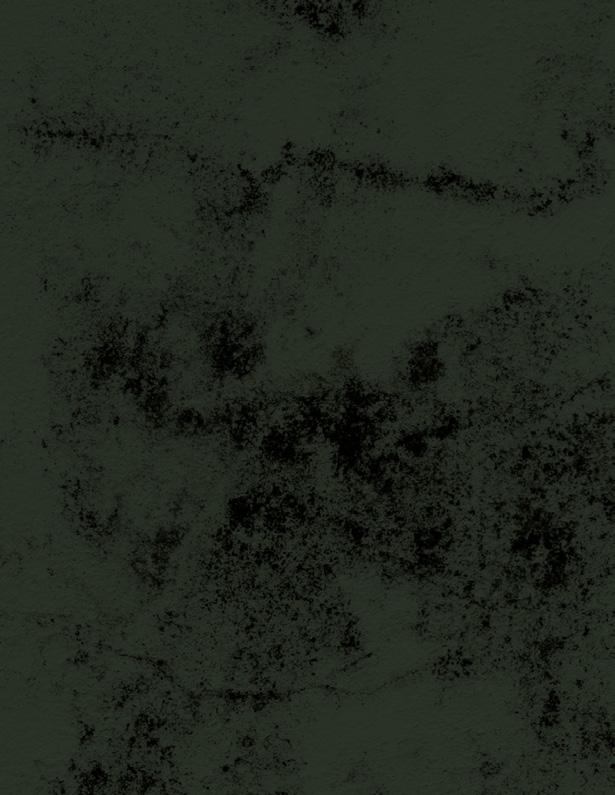
5 JANUARY 2023
Saw Hser K’ Paw Moo served with us for 5 years as a Good Life Club leader and video man. He was a friend to all he knew and he loved life. We remember him as one of the best children’s program leaders and he was always kind and very funny. His team in training was the most outstanding team and won the top awards. He was killed by the Burma Army on January 5, 2023. His loss is huge for us all here and we will do our best to honor his memory and help his family.
Saw Baw Boe
9 JANUARY 2023
Saw Baw Boe is one of our original Rangers and has been with us for over 20 years. He was killed on 9 January 2023 in western Karen State as he filmed a Burma Army offensive. He was tireless and cheerful and was very talented. He served in the jungle, helping his people, as well as in the highest political levels and ceasefire negotiations with the Burma military. He was one of the most trusted people in Burma and is irreplaceable. Most of all, he was a friend and brother to us.
Vittorio
20 JANUARY 2023
Vittorio acted bravely and selflessly up to the point of his death. He was killed helping others escape through intense fire of the Burma Army. His life inspires us, and his death makes us sad, but we thank God that he is now in heaven, with Jesus. Vittorio set an example of love, service, and sacrifice for all of us, and we thank God for him. Our team was able to meet Vittorio’s parents and awarded him the FBR Medal of Honor.
Thant Zaw Htwe
11 APRIL 2023
Thant Zaw Htwe was killed by a Burma Army landmine on 11 April 2023. He was a leading member of the Good Life Club program and one of the kindest, most humble, and hard-working Rangers we ever served with. On the last mission we spent with him, his constant smile brightened each day while his love gave joy to children in hiding. After every children’s program, he would walk around and pick up trash and spent extra time comforting families. He was the first to be ready for any mission and one of the last to leave a dangerous area. He will be missed.
Francisco Jarja
18 MAY 2023
Francisco was very interested in helping people and bringing wounded to safety so he decided to join the Free Burma Rangers. During training, he was always cheerful and made us laugh. He was a very hard worker. He helped lead children’s programs and document the situation in Burma. Francisco was a bright light of love to the displaced. He was killed by a drone weapon in the battle of Tani Larle on the eastern side of Demoso, Karenni State. He is very missed by all of us who knew him, and we will do our best to help his family.
Saw Traw Sher
21 MAY 2023
Saw Traw Sher joined FBR in 2015 and served for over eight years until his death. He distinguished himself in the relief team training as an eager, able, and hard-working Ranger. He returned to his area of Thaton District to help his people and serve FBR. There he proved to be a highly competent relief provider and security lead. He was calm under all kinds of pressure and was very brave, even under fire. He was killed when he was hit by a 40mm grenade fired from a Burma Army M79 grenade launcher. His actions helped slow the advance of the Burma Army but he lost his life in doing so.
Hti Moo Klo
8 JULY 2023
Hti Moo Klo was a Karen FBR team leader, serving as a humanitarian worker for over 20 years. No matter whether he had supplies or not, or whether it was dangerous or not, he would quickly go to any area under attack and to help people in need. If he had nothing to give, he just stayed with those in hiding, offering his warm smile, sharing their danger and getting the news out until supplies came. During the conduct of relief missions, he became very sick, and could not continue, eventually passing.



Ko Ko
18 NOVEMBER 2023
Ko Ko was killed by Burma Army rifle fire on 18 November 2023, as he was providing assistance on the front lines. Ko Ko was in his second year as a Free Burma Ranger relief team member when he was cut down in the prime of life, serving others. Ko Ko was always smiling, even in training, and lifted all our spirits. He became close to all of us and this is a loss that goes very deep. We honor him and we will do our best to support his family. Ko Ko was a follower of Jesus and we look forward to seeing him in heaven.
Saw Htin Linn Oo
18 DECEMBER 2023
Saw Htin Linn Oo, a Free Burma Ranger who joined us for the past two years from Rangoon, drowned while supporting a training mission. Saw Htin Linn Oo was one of the most cheerful, most competent Rangers we had ever trained and worked with. He joined us after the coup, when he was forced to flee Rangoon. He then attended two different Ranger trainings so, as he said, “I could get better and better to serve my people.” He was extremely humble and offered his services right away as a mechanic and showed himself as someone who could fix anything with a smile.
Dabyano




21 FEBRUARY 2024
Dabyano, of our Karenni Ranger team, was tragically killed. He was murdered by someone in the community, not the Burma military. The killers hid the body and then tried to cover everything up. The culprits were captured and confessed, and were recently sentenced to 20 years in prison. Dabyano was an extremely physically powerful man, but he did not join the resistance to fight the Burma Army. He did not want to do that. He said, “I want to help save people and make children happy.” For three years he risked his life numerous times, braving machine gun fire, mortars, and rockets, to save civilians and resistance soldiers.
Kyaw Gyi
20 MARCH 2024
Kyaw Gyi was killed by the Burma Army. He was single and went through the Ranger training two years ago, where his main focus was leading Good Life Club (GLC) programs for children and families. He was a constantly-smiling member of the team and an excellent GLC leader who made everyone laugh. We thank God for heaven, and that we can see our friend and teammate, Kyaw Gyi, again. In the meantime, we are glad he is forever with Jesus. We love him very much and will honor his
Sai Tway (Shine)
13 APRIL 2024
Sai Tway, also know as Shine, was killed by a Burma military airstrike as he tried to rescue people in Pekhon, southern Shan state. We first met Sai Tway two years ago on the battlefield. Right away his bravery was obvious: he was running toward danger to help evacuate wounded soldiers and civilians out of direct Burma Army fire. But when he came to the Rangers, we discovered his joyful spirit. It seemed like he never lost his smile or stopped cracking jokes. He was loved by all on our team, and we believe because of the love of Jesus, we will see Sai Tway in heaven.
Chan Thar
24 APRIL 2024
Chan Thar died in a tragic accident while delivering supplies and ammunition to people trying to defend themselves. Chan Thar was the kind of person who could make friends across different ethnic groups, faiths, races, and backgrounds. Everyone loved him and he had the ability to unite people from different groups. Our consolation is all the great things he did, the way he made our lives better, and all the ways he built up other people around him, giving life and saving life. His example lives on.
64 rangers have given their lives for others. This past year, 13 were killed as they gave help, hope, and love to people in need.

Thank you for praying for
